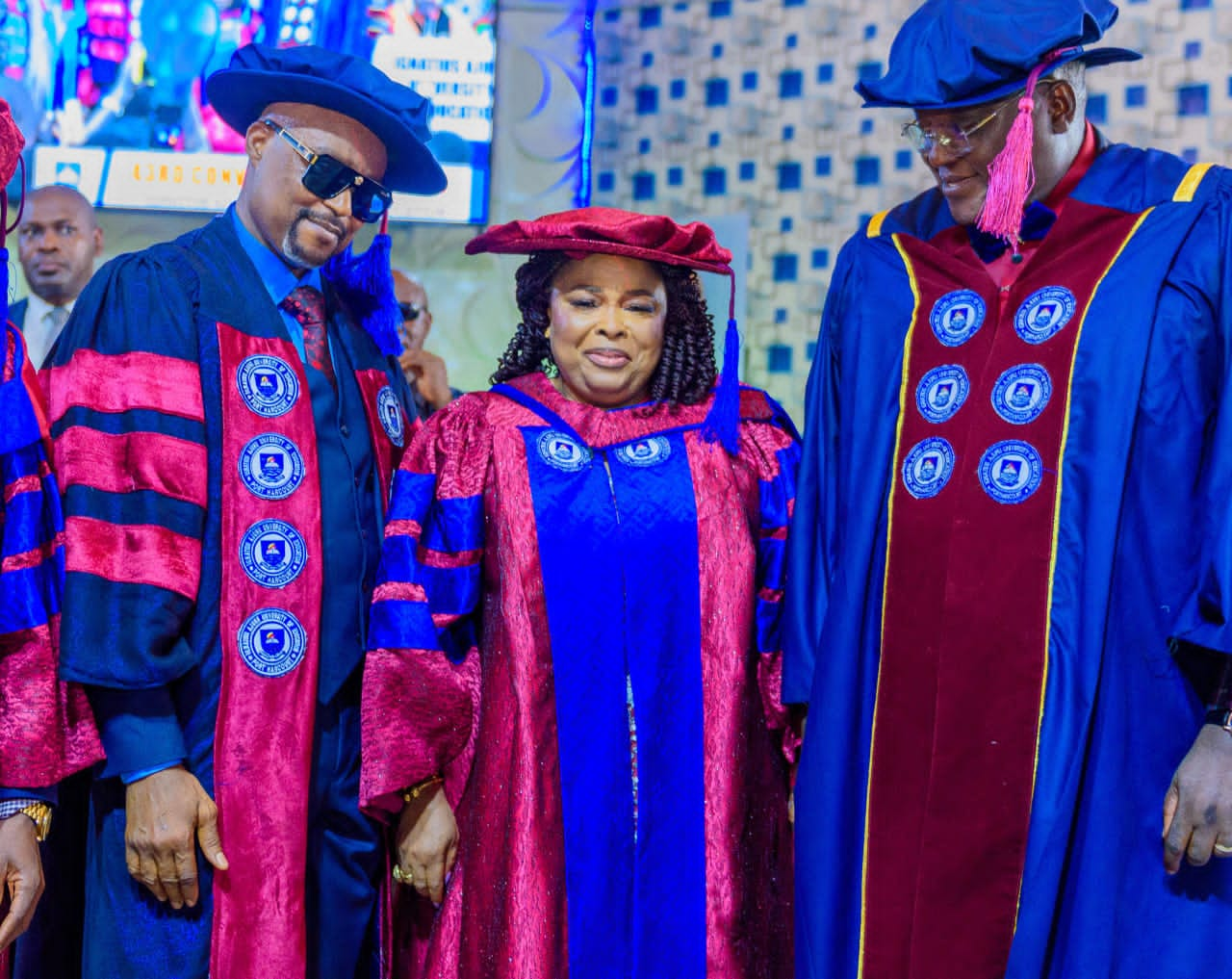Education
Education Law: ‘Non-Implementation Hinders Indigenous Language Study’
The non-implementation of
the Rivers State Education (Teaching of Indigenous Languages) law of 2003 has been identified as a major challenge in the development of indigenous languages.
The Executive Secretary of the “Rivers State Readers Project,” Dr. Tony Enyia, disclosed this in his presentation at a two-day training workshop on the development of Rivers State Languages Orthographies Manuals in Port Harcourt.
According to him, the provisions of the law, which was gazetted and published in 2005 made it clear that, “teaching of indigenous languages was compulsory for all pre-primary, primary and junior secondary schools in Rivers State.”
He said, at the end of the teaching, pupils were to be “examined at the end of primary six in the first school leaving certificate, and also junior secondary three leaving certificate examination. But that is not happening.”
Dr. Enyia explained that it is in a bid to resolve this and other impediments to the development of indigenous Rivers State languages that the Rivers State Readers Project deemed it necessary to hold the training workshop.
The Rivers State Readers scribe also identified lack of fund as another key challenge to the development of indigenous languages in the state.
“The main challenges we faced was that for five years of our existence, we did not get any fund, no money came in, and the approved estimated appropriations were not released for obvious reasons,” he said.
Such reasons, he continued, are government’s preference to invest in projects that can be seen, which includes road, schools, classroom blocks and health centres.
He, however, noted that government, under the leadership of Rt. Hon. Chibuike Amaechi, has lately developed interest in the language project, and commended the Governor for such interest.
“We do hope that the interest will be sustained by releasing approved budgetary appropriation so that we would be able to run the project. We need fund to be able to do anything.
“We’ve been stretching the little fund we have got to be able to accomplish the little we have done,” he concluded.
The 17 languages being developed by the Rivers State Readers Project are Abua, Degema, Egbema, Ekpeye, Egeni, Etche, Eleme, Gokana, Ikwerre, Ibani, Khana, Kalabari, Ndoni, Odual, Ogba, Obolo and Okrika respectively.
Education
‘Our Target Is To Go Beyond Academic Accomplishments’

The Acting Vice Chancellor of Ignatius Ajuru University of Education, Port Harcourt, Prof. Okechuku Onuchuku, emphasised the need for students to go beyond academic achievements during the university’s 43rd Convocation ceremony.
The theme, “The University Culture In Practice, The IAUE Experience,” highlights the importance of embracing cherished traditions and intellectual values that define great universities.
Prof. Onuchuku encouraged the new graduates to work hard and persevere, noting that their convocation marks a new beginning in their careers and personal lives. He emphasised that they must prove themselves worthy of the certificates and prizes they have received.
According to him, out of 2,887 first-degree graduands, four made First Class, 403 secured Second Class Upper, 2,030 got Second Class Lower, and 450 graduated with Third Class. Additionally, 1,492 postgraduate students graduated, including 306 PhD holders.
The Sole Administrator of Rivers State, Vice Admiral Ibok-Ete Ekwe Ibas (Rtd), praised the university’s commitment to academic excellence and institutional maturity. He commended the Acting Vice Chancellor for achieving full accreditation for 47 academic programmes and implementing the NUC’s Core Curriculum Minimum Academic Standards.
The administrator urged the new graduates to uphold the positive values instilled in them by the university and strive for continuous knowledge and improvement.
By: King Onunwor
Education
Niger Delta Students Suspend Protest Against NDDC In PH

The Niger Delta Students Union Government, Rivers State Chapter (NIDSUG), has suspended its planned protest against the Niger Delta Development Commission (NDDC) state office in Port Harcourt. The suspension followed an intervention by the state Commissioner of Police, CP Olugbenga Adepoju.
The students had planned to protest on Thursday, citing alleged neglect by the NDDC, particularly in welfare and capacity-building programmes for students from the state. However, after the police intervention, the students agreed to participate in a roundtable discussion with the commission to address their concerns.
NIDSUG leader, Comrade Loveday Njoku, expressed dissatisfaction with the commission’s alleged exclusion of students from benefiting from its programmes. He presented a seven-point demand, including the reintroduction of scholarships for undergraduate and postgraduate students. Njoku emphasised that education is crucial for community development and urged the commission to invest in the future leaders of the state.
The students warned that if their demands are not met, they will resume the protest and occupy the state commission office until their demands are addressed. Despite previous attempts to reach out to the commission’s management team, the students claimed their efforts were unsuccessful.
By: Akujobi Amadi
Education
Administrator Inspects School

As part of efforts to improve the welfare and overall quality of education for students in Obio/Akpor Local Government Area, the Sole Administrator, Sir (Dr.) Clifford Ndu Walter DSSRS, FCAI, JP, paid an unscheduled visit to Universal Primary School, Rumukwurusi.
During the visit, Sir Walter expressed deep concern over the deplorable state of the school and its surrounding environment. He reaffirmed his administration’s commitment to the development of the education sector, stressing its critical role in nation-building.
“I have visited the primary school in Ogbogoro, and now I’m here at the Universal Primary School, Rumukwurusi. I am not satisfied with what I’ve seen,” he stated, indicating that more surprise visits to schools would follow.
To address the issues, the Sole Administrator directed the Council Engineer to commence process for rehabilitation of the school.
The visit was part of a broader initiative aimed at conducting on-the-spot assessments of educational facilities to determine the level of intervention required by the local government council.
Dr. Walter also assured the teachers of his unwavering commitment to revamp the school and improve the learning environment for both staff and students.

